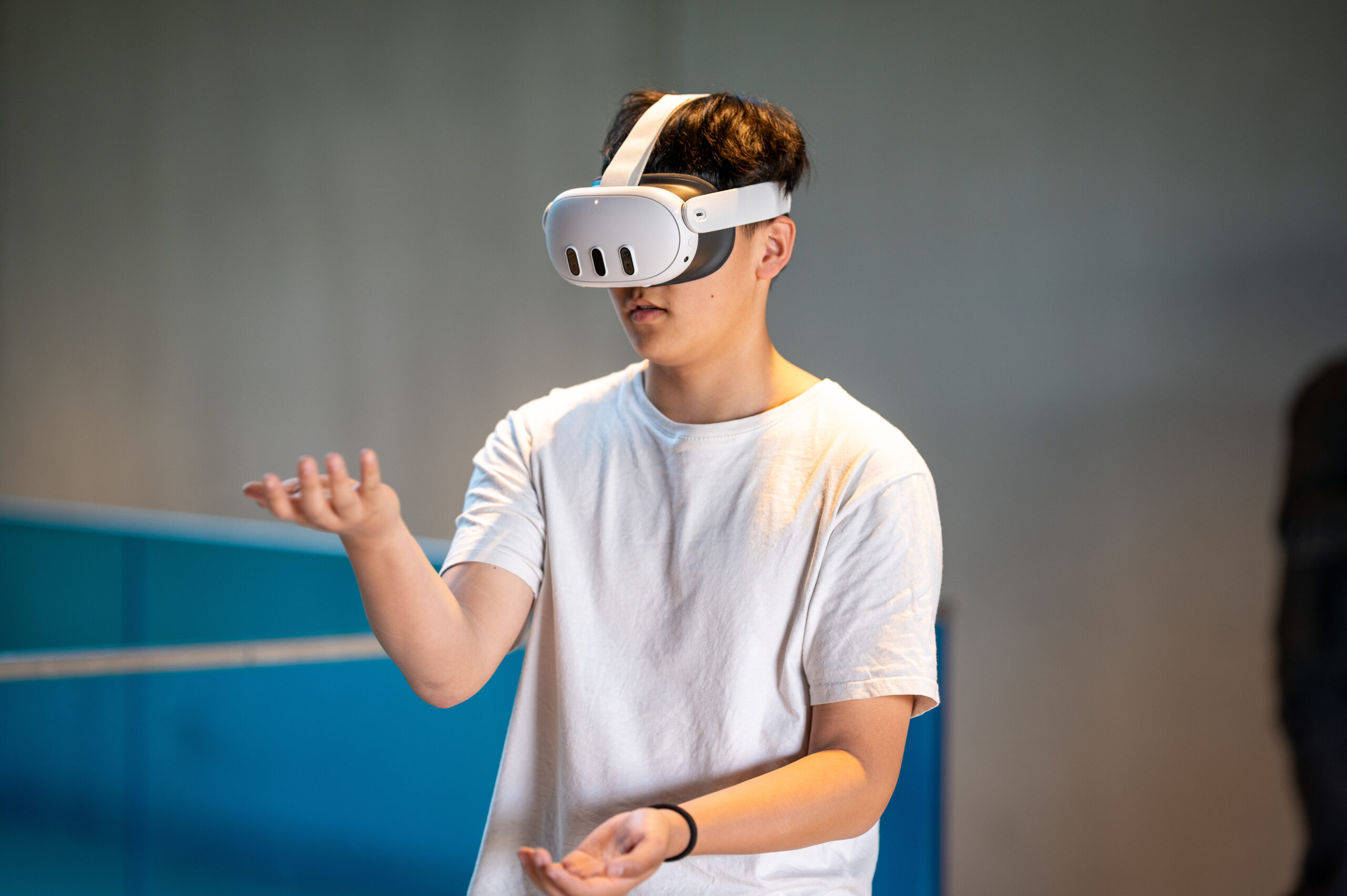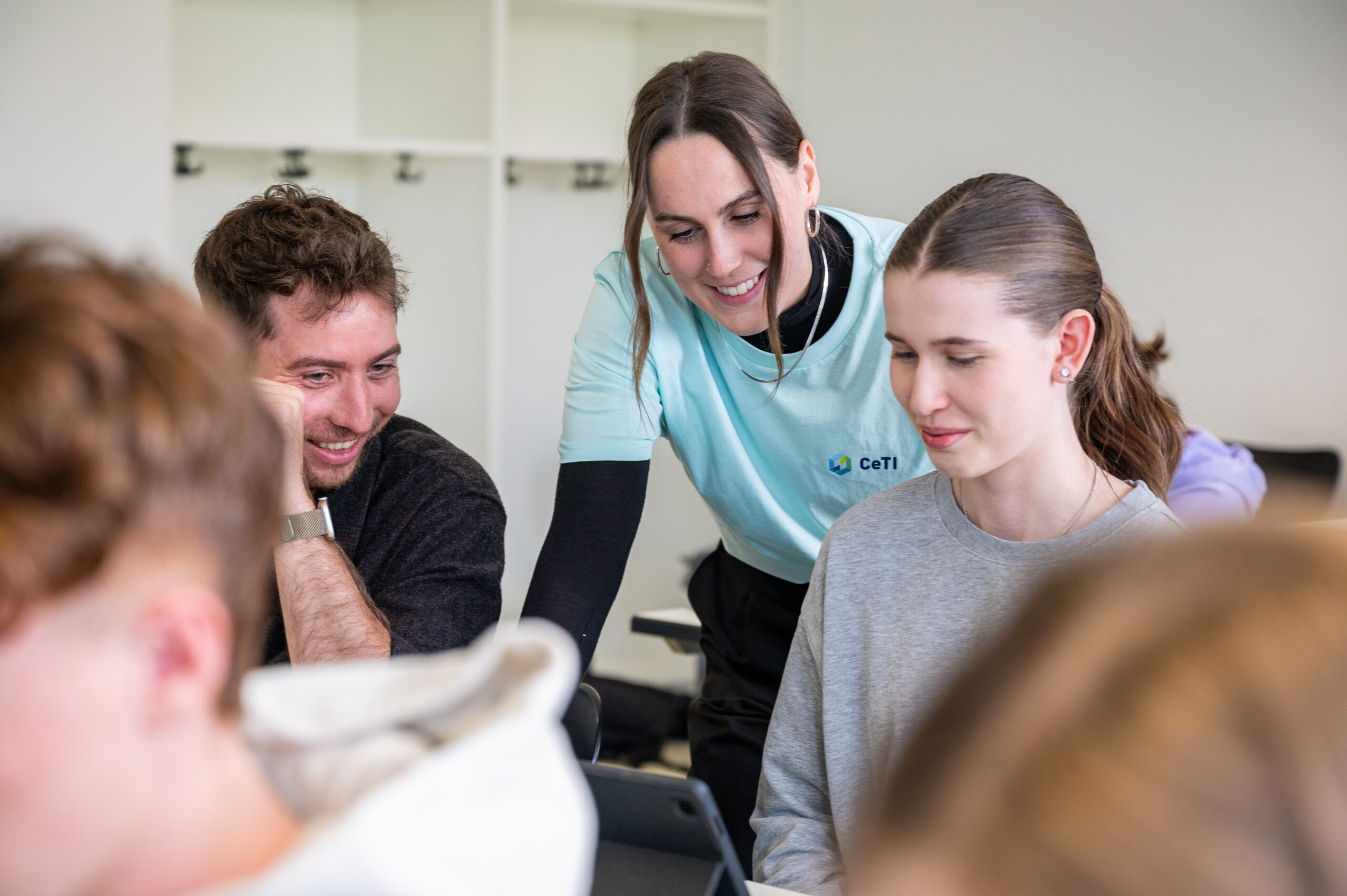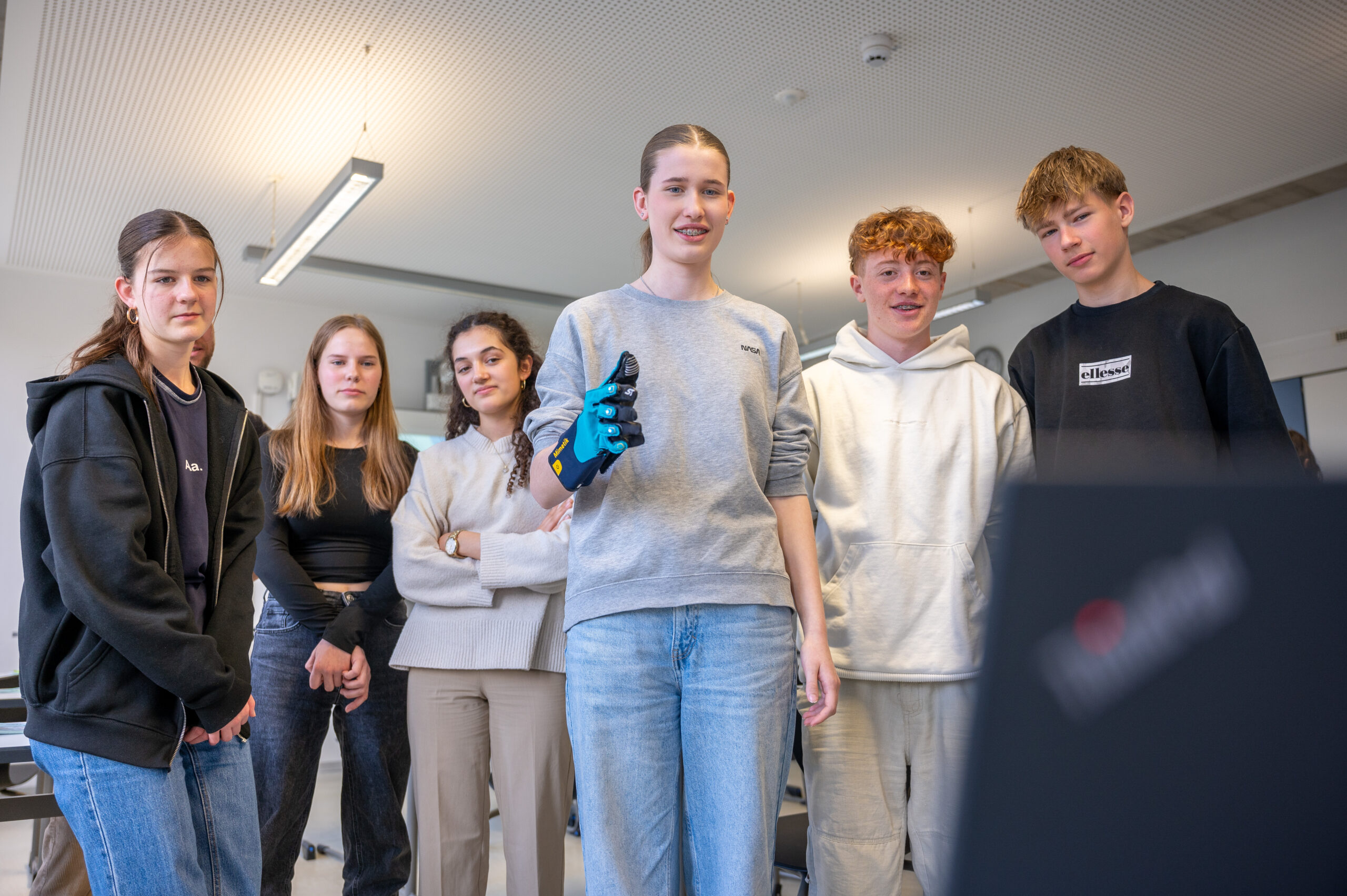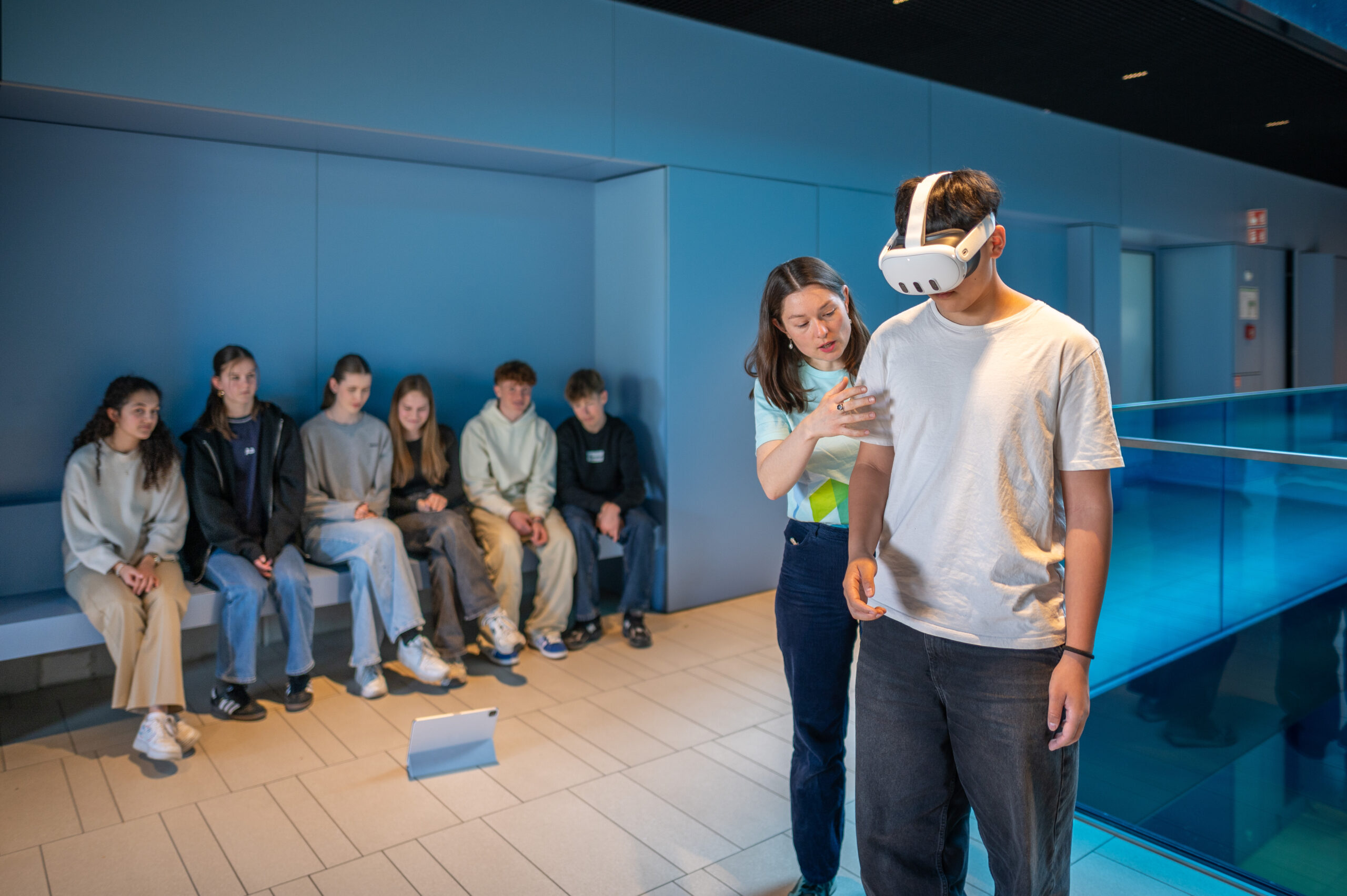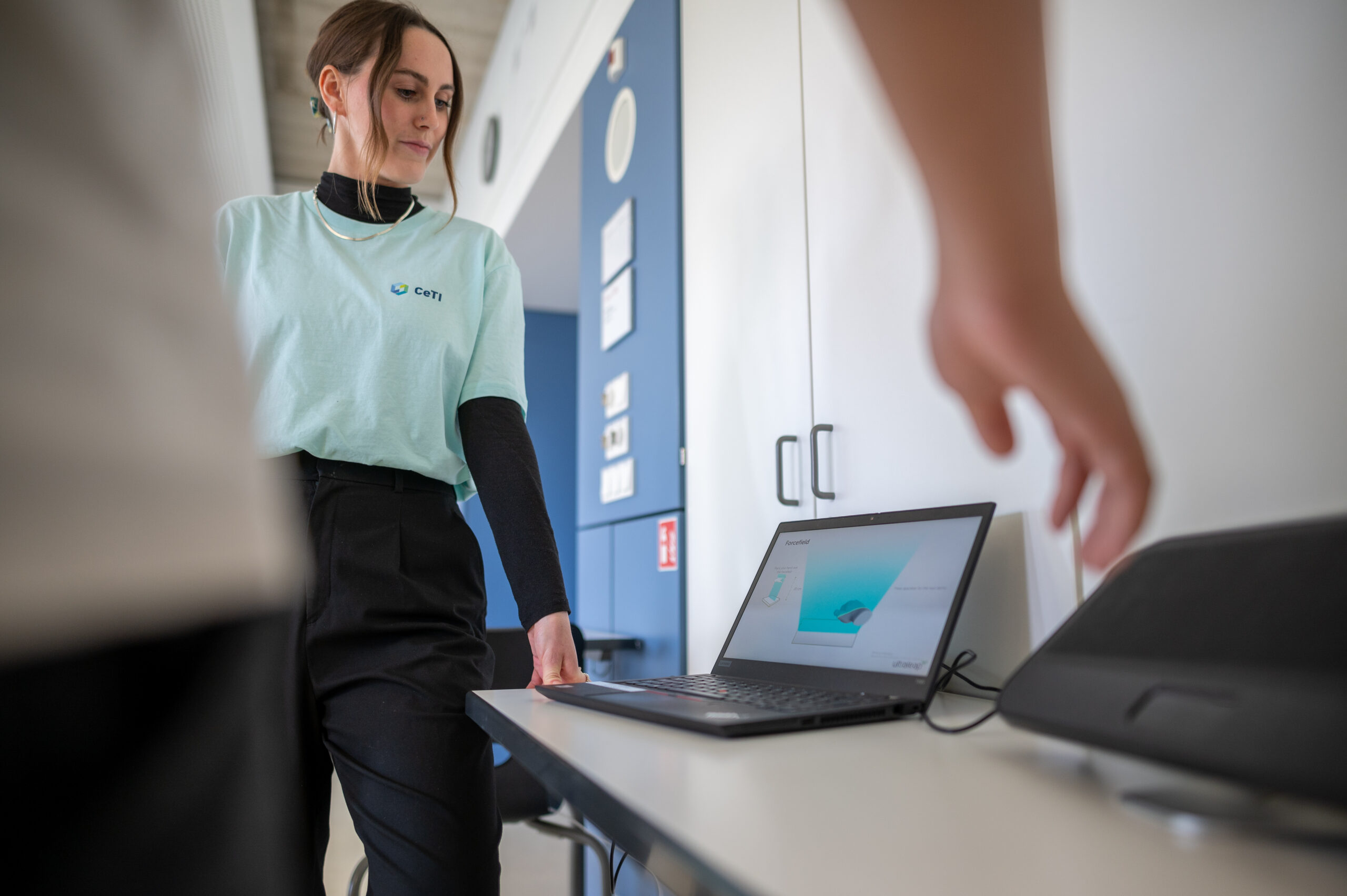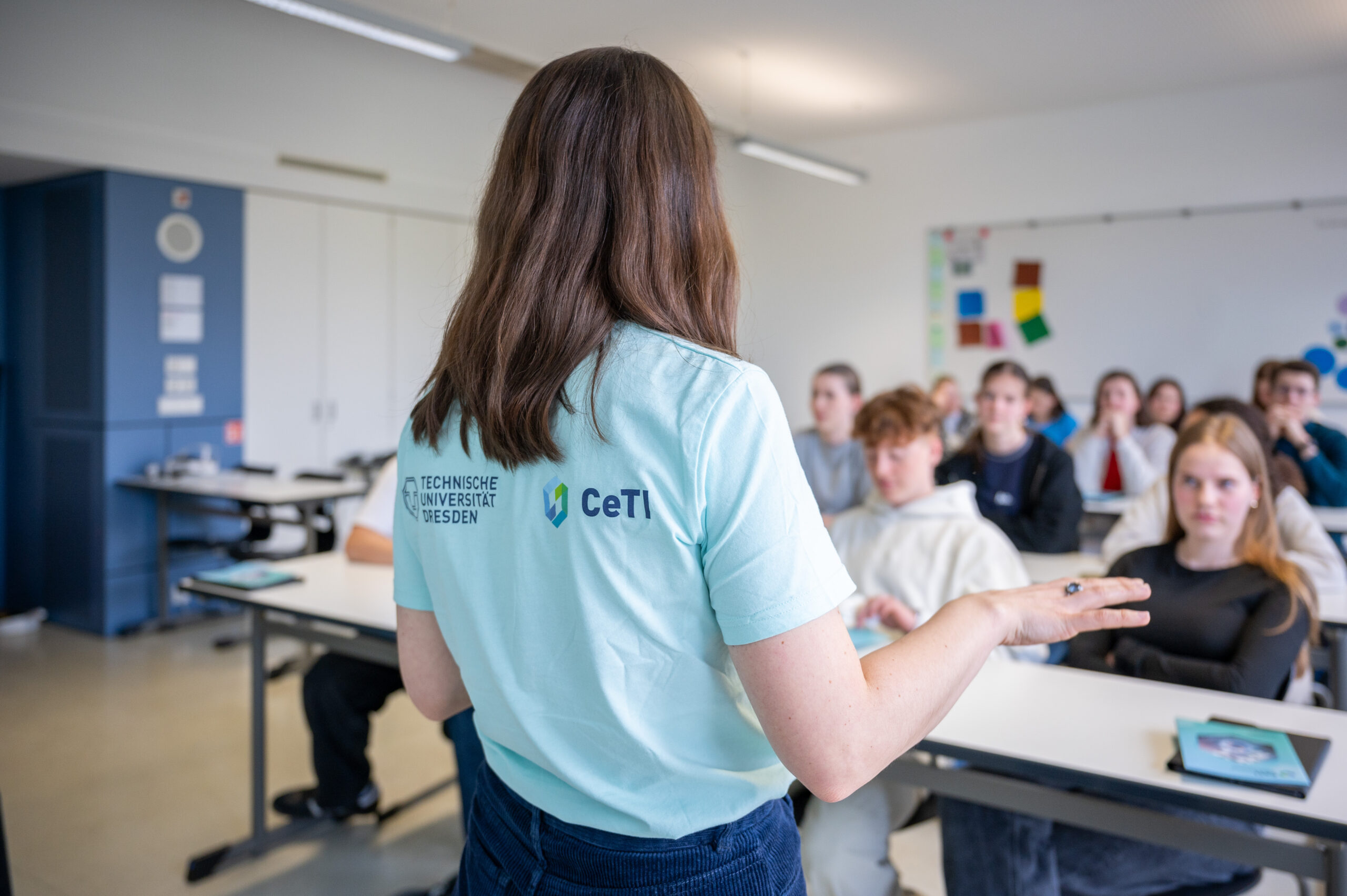Our school modules
The Cluster of Excellence Centre for Tactile Internet with Human-in-the-Loop (CeTI) currently offers seven digital modules for school classes, based on the Saxon curriculum. The modules were developed by scientists together with educators and are aimed at different class levels. In live sessions, questions and problems of digitalisation are developed and discussed. For example, pupils can also learn the basics of programming and develop their own mobile game. CeTI aims to bring new technologies into the (virtual) classroom and empower learners to use them. The modules are designed for 90 minutes each, but can be flexibly adapted. We provide all the technical requirements to ensure that everything runs smoothly.
Module 1: Develop your clever everyday helper! How the Tactile Internet can help us in everyday life.
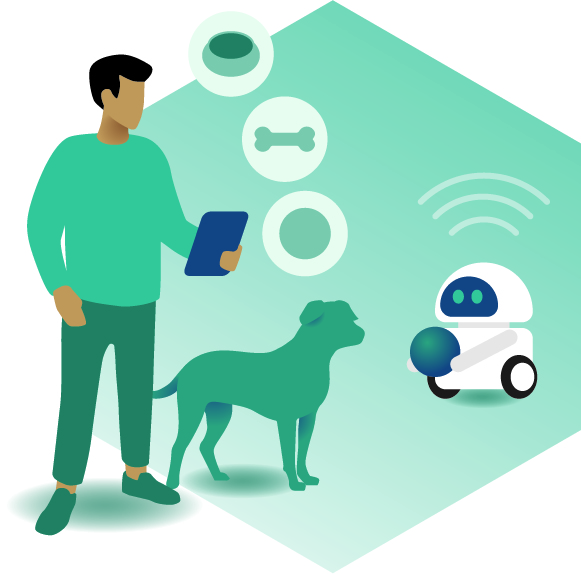
This workshop focusses on robotics. We will show the different areas of application for robots that are already making our everyday lives easier. Using demonstrators from the CeTI, we will explain the tactile internet and the associated real-time transmission of data. Building on this, the pupils can become active and, above all, creative themselves: They are to develop their own everyday helper in the course of the workshop.
Curriculum reference:
- High school
- Technology and computers, grade 5/6, LB2
- Computer science, grade 7, WB3
- Computer science, grade 8, WB3
- Secondary school
- Technology and computers, grade 6, LB1
Module 2: Programming algorithms? A piece of cake!
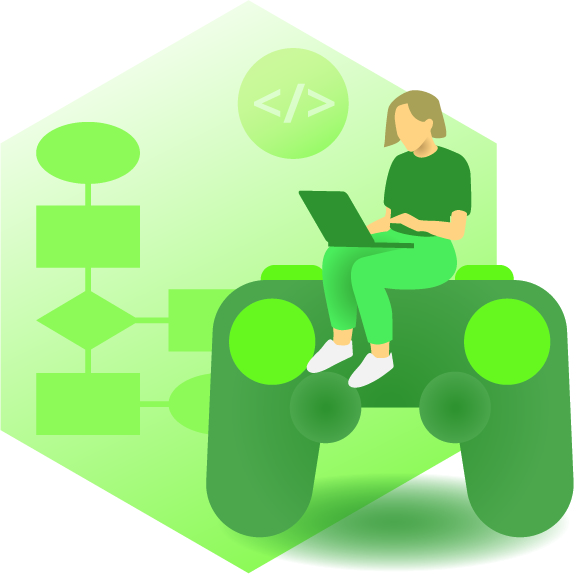
Pupils use algorithms every day, because what young person today does not use social media (YouTube, Instagram, TikTok, etc.)? In this workshop, learners will not only learn about the functions and features of algorithms, but also programme an algorithm themselves. In the form of a mini-game, learners apply the knowledge they have acquired and can try their hand at programming.
Curriculum reference:
- High school
- Maths, grade 8, WB1
- Computer science, grade 8, LB2
- Computer science, grade 9/10, LB4
- Secondary school
- Computer science, grade 7, WB1
In co-operation with Schaufler Lab
Module 3: … and tomorrow the robot will take out the rubbish – the impact of digitalisation on society and work
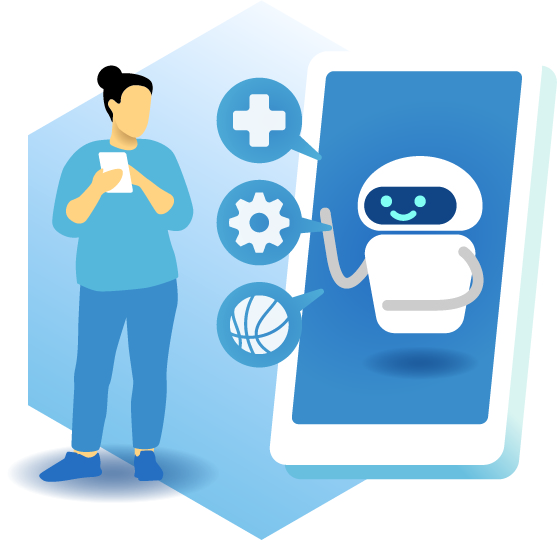
Digitalisation is a highly topical term, but what does it actually mean? In this module, students will learn about the scope of digitalisation with a particular focus on the medical and leisure sectors. Case studies will be used to work out exactly where the opportunities but also the dangers of digitalisation lie. The workshop will also be underpinned by CeTI’s current research projects.
Curriculum reference:
- High school
- Computer science, grade 9/10, WB4
- Computer science, basic course 11/12, LB1
Module 4: Is everything unfair? This is how discriminatory AI can be.

Artificial intelligence can already do almost everything we humans can do: Painting pictures, driving cars, holding conversations and much more, but it is actually also capable of marginalising people. In this workshop, students will learn what AI is and where it can be used. They will then discuss how AI puts other people at a disadvantage and how they can take action against this discrimination.
Curriculum reference:
- High school
-
- Computer science, grade 9/10, LB4
- Computer science, basic course 11/12, LB5
- Ethics, grade 7, LB3
- Ethics, grade 10, LB1
- Secondary school
- Computer science, grade 8, LB2
- High school with professional focus
- Computer science, grade 12/13, LB3
- Computer science, grade 12/13, WB2
In cooperation with Schaufler Lab
Module 5: Clever coding with the Calliope mini
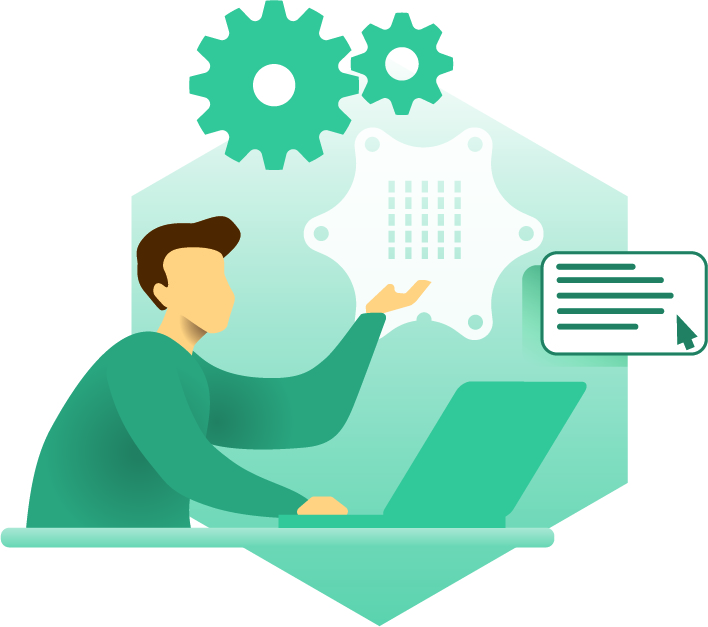
Programming is only for real computer science professionals and far too difficult for schoolchildren? That’s nonsense! In this module, we learn the basics of programming together and develop cool applications with the Calliope mini. The possibilities are endless – pedometer, temperature measurement or programming an entire electric piano? Together we’ll find out what’s possible!
Curriculum reference:
- High school
- Technology and computers, grade 5/6, LB2
- Secondary school
- Technology and computers, grade 6, LB1
- Elementary school
- Crafts, grade 4, LB3
Please note: Module 5 consists of two units of 90 minutes each.
Module 6: Tactile Internet, 5G, Artificial Intelligence – What opportunities does digitalisation offer?
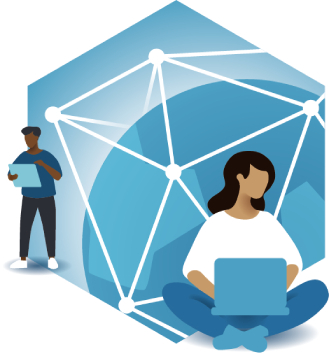
Digitalisation is already an important part of our everyday lives. In this workshop, participants are made aware of where they already come into contact with digitalisation and what exactly is hidden behind these technologies. What do they all have in common and how do they differ?
Curriculum reference:
- High school
- Computer science, year 8, WB3
- Computer science, grade 9/10, LB1 and WB4
- Computer science, basic course 11/12, LB1
- Ethics, grade 10, LB1
In co-operation with Schaufler Lab
Module 7: Tasting without smelling? How multimodal perception influences our everyday technical lives.
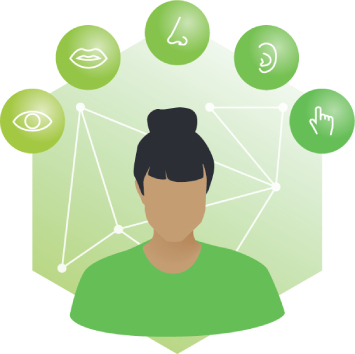
By using our senses, we humans can perceive our environment. The fact that in most cases this is an interrelation of several senses is something we often experience unconsciously. This workshop will provide a deeper insight into multimodal perception. Various small experiments will be carried out in order to build a bridge to current examples from technology in which human multimodality has been imitated and integrated. Research content from the CeTI Cluster of Excellence is presented and challenges in the realisation of multimodality are highlighted. This module is initially only possible in presence.
Curriculum reference:
- High school
- Philosophy, grade 11/12, LB3
- Biology, grade 8, LB1 and WB2
- Ethics, grade 6, LB1
- Secondary school
- Ethics, grade 6, LB1
- Biology, grade 8, LB1
- Elemantary school
- General studies, grade 3, LB2
- Crafts, grade 4, LB3
Schools attended
including online
Impressions

Ich fand das CeTI-Schulmodul total lehrreich. Irgendwie kann ich mir schon vorstellen, jetzt auch im Job zu programmieren – war eigentlich gar nicht so schwer.

Durch die Girls’ Day Akademie Dresden konnte ich an der Veranstaltung „Alles unfair? So diskriminierend kann KI sein.“ teilnehmen und habe viel Neues über Künstliche Intelligenz erfahren. Obwohl die Veranstaltung online stattfand, war sie sehr abwechslungsreich gestaltet. Eine visuelle Ausstellung und drei Berichte über Vorfälle von Diskriminierung durch KI haben uns dem Thema näher gebracht.

Das CeTI hat mich gelehrt, dass der Diskurs um unsere digitalisierte Gesellschaft sowohl in den Naturwissenschaften als auch den Geisteswissenschaften geführt wird. Es gibt dementsprechend eine beachtliche Mehrperspektivität auf die Digitalisierung und die Robotik. Das hat zur Folge, dass du unabhängig davon, wo deine Interessen liegen, in unseren Workshops Anknüpfungen zu Deinem Alltag herstellen kannst.

Die digitalen Schulmodule des CeTI sind abwechslungsreich und bieten einen vielfältigen Einblick rund um die Themen Robotik und taktiles Internet. Die inhaltliche wie auch didaktische Ausgestaltung sind optimal an die Bedürfnisse der jungen Zielgruppe angepasst und holen sie in ihrer Lebensrealität ab. Unseren Teilnehmerinnen der Girls’ Day Akademie machen die Angebote viel Freude.

Ich fand das Schulmodul sehr spannend und eine sehr gute Idee. Das Team ist gut drauf und es macht viel Spaß, daran teilzunehmen. Außerdem gibt es nicht nur den Theorieteil, wie man ihn sonst kennt, sondern auch einen Praxisteil, der nochmal mehr Motivation für das ganze Thema bringt. Man beschäftigt sich dabei mit verschiedenen Themen aus einem Gebiet und ich kann mir gut vorstellen, dass das bei Groß und Klein sehr gut ankommt.

Unser Ziel ist es, jungen Menschen die Arbeit am CeTI näher vorzustellen und wichtige aktuelle Themen zu vermitteln. Wir sind immer wieder begeistert von den Ideen, der Motivation und der Begeisterung der Teilnehmernd für unsere Zukunftsvisionen. Besonderer Spaß kommt meist bei unserem praktischen Teil auf; ich durfte damals z. B. einen Roboterarm programmieren.

Meine Erwartungen wurden übertroffen. Mir hat am Besten gefallen, dass ich so selbständig arbeiten konnte und meine eigene Anwendung kreativ entwickeln und programmieren konnte.

Der derzeitige Umschwung von analog zu digital ist vor allem im Bereich der schulischen Bildung von außerordentlicher Bedeutung für unsere nächsten Generationen. Gerade deswegen bin ich stolz Teil des Exzellenzcluster CeTI sein zu können. Wir erarbeiten verschiedenste Workshops rund um die Themen Robotik, taktiles Internet und Interaktion zwischen Mensch und Maschine.
Get in touch with us
Are you interested in our school modules or do you have further questions? Then simply send us an e-mail: schools.CeTI@tu-dresden.de
















